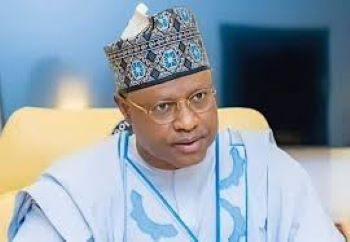The Kaduna State Government has approved new road construction and repair projects across all 23 local government areas. It has also set aside ₦3.5 billion to compensate property owners and service providers who may be affected by the projects.
The decision was made at a recent meeting of the State Executive Council, which gave the go-ahead for important road contracts. This marks the start of the second phase of Governor Uba Sani’s plan to improve both rural areas and cities.
The Managing Director of the Kaduna State Roads Agency (KADRA), Dr Abdullahi Baba Ahmed, told journalists on Thursday that the compensation package is meant to ensure the projects run smoothly without disputes over land and rights-of-way.
He explained that the roads were chosen to improve movement, make it easier to reach markets and services, and build on the infrastructure already put in place during the governor’s first two years in office.
“These new roads will reach every local government in the state. We’re not just building roads, we’re building opportunities for trade, jobs, and development,” Dr Ahmed said. “Governor Uba Sani is determined to make sure no community is left out.”
Some of the newly approved projects include the reconstruction of Rigasa Township Roads in Igabi LGA, Kwoi Township Roads in Jaba LGA, and a new asphalt road linking Kachia-Zonkwa Road to the new Federal University of Applied Sciences in Kachia LGA.
Other projects are the completion of the long-abandoned dual carriage road from PAN Drive through Television Garage to Sabon Tasha in Chikun LGA; the Bassawa Junction–Hunkiyi Junction road linking Sabon Gari to Kudan LGAs; and the Kayarda Tasha–Maskawa–Dan Alhaji Road in Lere LGA.
Dr Ahmed added that more than 780 kilometres of roads have already been built or repaired under Governor Uba Sani, including projects started by previous governments, some going back to the time of the late Governor Patrick Yakowa.
He described the new approvals as “a turning point in Kaduna’s infrastructure development,” and promised that the government would deliver the projects on time and make sure every naira is well spent.


